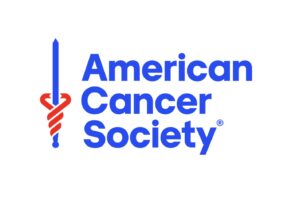Applications now open for new program offering recent college graduates the opportunity to gain cancer and infectious disease research experience.
SAN ANTONIO (March 4, 2024) – A new program at Texas Biomedical Research Institute (Texas Biomed) will provide training in cancer and infectious disease research for recent college graduates, while helping increase diversity in the scientific workforce.
The American Cancer Society Post Baccalaureate Fellows Program at Texas Biomed is supported by the American Cancer Society Center for Diversity in Cancer Research Training. The initiative capitalizes on longstanding research showing the benefits of supporting scientists and trainees from diverse backgrounds and life experiences, including improving the quality of research, enhancing global competitiveness and improving public trust.
“We are pleased to bring this fellowship program to Texas Biomed and work to fill a critical gap in the workforce development pipeline,” says Ellie Daniels, M.D., M.P.H., Senior Vice President for the American Cancer Society Center for Diversity in Cancer Research Training. “Diverse perspectives in research are needed to help overcome inequities in cancer prevention, treatment and care.”

Applicants must be recent college graduates who have earned a science, technology, engineering, math or healthcare-related degree and who are interested in pursuing a doctoral degree in biomedical science, data science, population health, public health or a health profession.
The program is geared towards providing opportunities for those who are typically underrepresented in U.S. research labs – first-generation college graduates, those from economically-disadvantaged backgrounds and/or other groups underrepresented in the cancer research field. The National Institutes of Health has found people who are Black, Hispanic/Latino, American Indian, Alaska Native, Native Hawaiian or Pacific Islander are underrepresented in the sciences.
“The two-year program will immerse fellows fully in the research environment at Texas Biomed, where they will work on cancer research projects, build their skills and develop as scientists before applying to graduate programs,” says Crystal Bolden-Rush, Ph.D., the Institute’s Director of Research Education. “We are very excited to partner with American Cancer Society to offer this program and work together to ensure future generations of researchers represent our community.”
Texas Biomed joins a small group of institutes offering this American Cancer Society fellowship. As a research institute specializing in infectious diseases such as tuberculosis, HIV and COVID-19, Texas Biomed will provide a unique opportunity to train at the intersection of cancer and infectious diseases.
“There is increasing evidence that infections can cause cancer, either through driving molecular mutations or through increasing inflammation,” says Joanne Turner, Ph.D., Executive Vice President for Research at Texas Biomed. “It is also well known that the treatments for cancer can result in immunosuppression that makes a person more susceptible to infections. The link between infection and cancer is a critical and understudied area, and researching these links may result in better preventative treatments.”
Fellows are paid a stipend and offered additional support for transportation, childcare and healthcare as needed. Texas Biomed will initially accept one fellow this year and two next year, with research beginning in the summer.
Applications are due April 1, but the portal will remain open until the position is filled. Learn more and apply: https://www.txbiomed.org/education-outreach/post-baccalaureate-fellows-program/